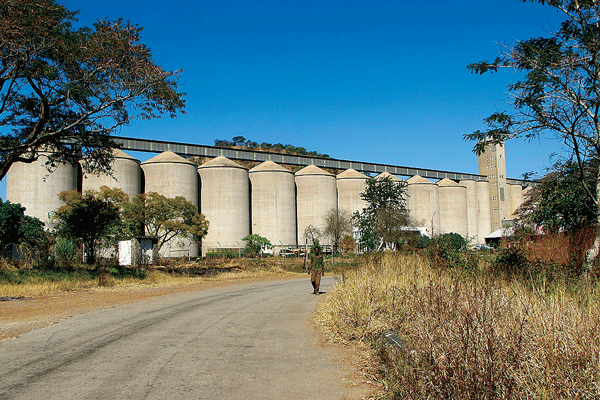
The milling industry in the southern part of the country is in crisis, with players reporting uncertain future as maize stocks from local farmers have decreased to alarming levels, Standardbusiness heard last week.
BY MTHANDAZO NYONI
The Grain Marketing Association of Zimbabwe (GMAZ) southern region chairman Thembinkosi Ndlovu told Standardbusiness that the industry was struggling due to challenges such as shortage of maize and funding.
“What I can say is that, the milling industry in this part of the country is struggling. We used to be supplied with maize by the Grain Marketing Board (GMB) but now it is no longer the case,” Ndlovu said.
“Millers are now buying maize from rural areas, especially in Gokwe, but this is not sustainable as we incur heavy costs when transporting that maize,” he said adding that funding was another big challenge facing the industry.
Ndlovu said because of financial challenges, millers were finding it hard to import maize. A Bulawayo-based company, Bulateke Milling, also confirmed the industry was facing challenges.
“We are facing challenges of maize availability. We are sourcing our maize from local farmers especially Gokwe but now the stocks are very low,” Bulateke’s general manager, Masauso Jele, said.
- Chamisa under fire over US$120K donation
- Mavhunga puts DeMbare into Chibuku quarterfinals
- Pension funds bet on Cabora Bassa oilfields
- Councils defy govt fire tender directive
Keep Reading
Zimbabwe millers have, for a long time, been grappling with an acute shortage of maize and wheat stemming from droughts and the controversial land reform programme which saw the majority of professional farmers being chased off the land at the turn of the millennium.
These challenges have led to company closures, with at least 30 milling companies in Matabeleland region closing down and throwing tens of thousands of workers onto the streets in 2013.
Nationally, the industry has recorded some of the highest numbers in company closures with records from the Gmaz showing that the number of players had gone down from 310 in 2008 to 62 as at December 2013.
Those that have survived closures have scaled down operations by 50% or more.
Zimbabwe is grappling with an acute shortage of food and people in most rural areas are suffering from hunger. The national deficit of 700 000 tonnes of maize is being covered through importation of grain from a number of countries by both the government and the private sector.
Ndlovu said imports were no longer a threat to the grain industry following government’s recent intervention to ban the importation of some agricultural produce.
“Supermarkets this side are stocked with locally produced mealie-meal. We haven’t witnessed any supermarket that has stocked foreign products,” Ndlovu said.
A snap survey by this paper last week in Bulawayo central business district showed that most big retail shops such as Pick n Pay, Metro Peach, Zapalala, Greens and OK supermarkets were selling locally produced mealie-meal.












